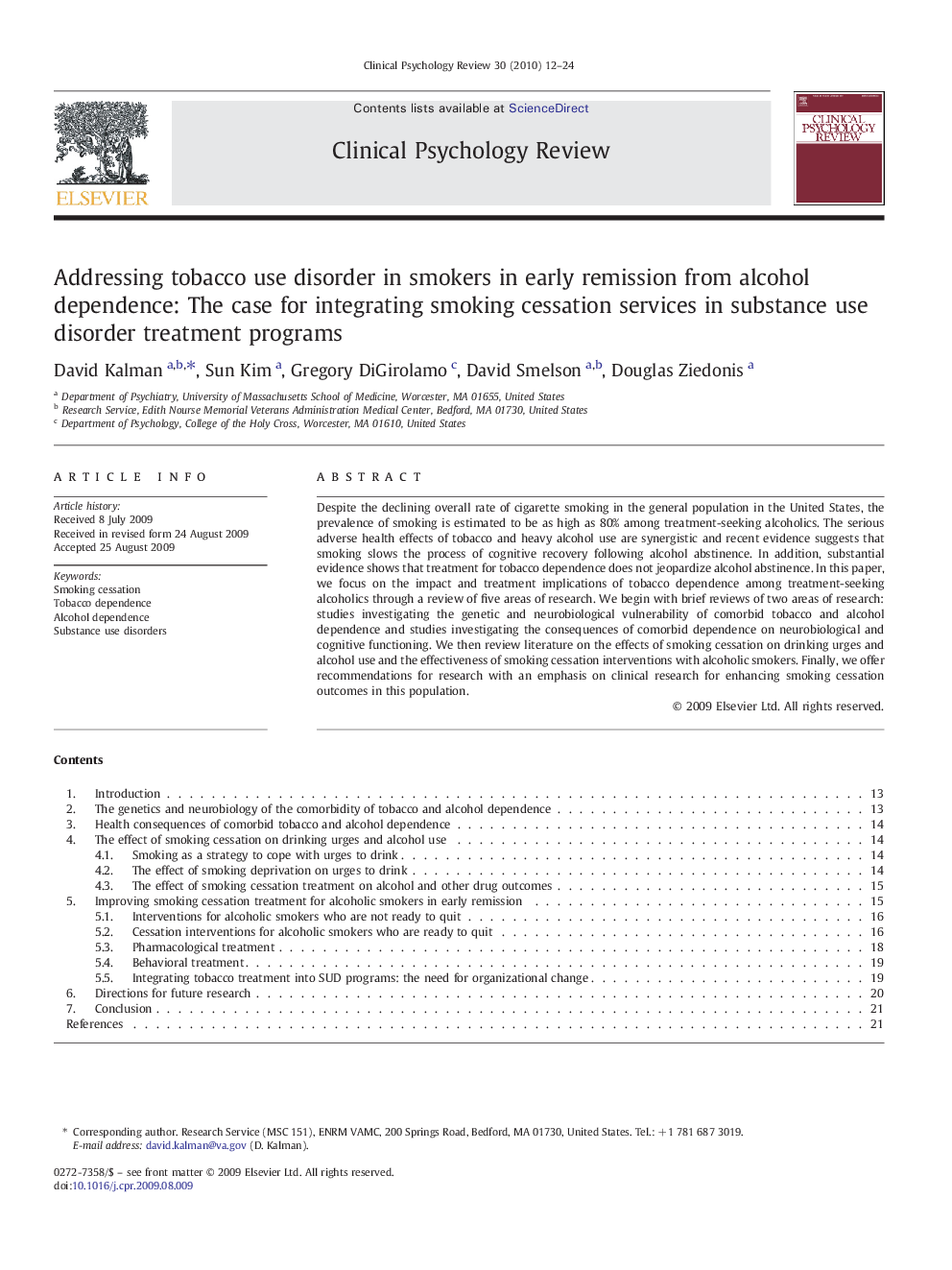| Article ID | Journal | Published Year | Pages | File Type |
|---|---|---|---|---|
| 904009 | Clinical Psychology Review | 2010 | 13 Pages |
Despite the declining overall rate of cigarette smoking in the general population in the United States, the prevalence of smoking is estimated to be as high as 80% among treatment-seeking alcoholics. The serious adverse health effects of tobacco and heavy alcohol use are synergistic and recent evidence suggests that smoking slows the process of cognitive recovery following alcohol abstinence. In addition, substantial evidence shows that treatment for tobacco dependence does not jeopardize alcohol abstinence. In this paper, we focus on the impact and treatment implications of tobacco dependence among treatment-seeking alcoholics through a review of five areas of research. We begin with brief reviews of two areas of research: studies investigating the genetic and neurobiological vulnerability of comorbid tobacco and alcohol dependence and studies investigating the consequences of comorbid dependence on neurobiological and cognitive functioning. We then review literature on the effects of smoking cessation on drinking urges and alcohol use and the effectiveness of smoking cessation interventions with alcoholic smokers. Finally, we offer recommendations for research with an emphasis on clinical research for enhancing smoking cessation outcomes in this population.
